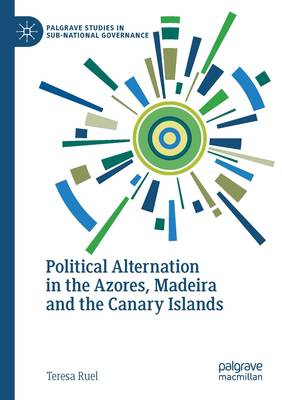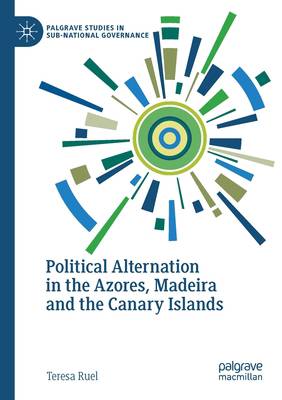
Vous voulez être sûr que vos cadeaux seront sous le sapin de Noël à temps? Nos magasins vous accueillent à bras ouverts. La plupart de nos magasins sont ouverts également les dimanches, vous pouvez vérifier les heures d'ouvertures sur notre site.
- Retrait gratuit dans votre magasin Club
- 7.000.000 titres dans notre catalogue
- Payer en toute sécurité
- Toujours un magasin près de chez vous
Vous voulez être sûr que vos cadeaux seront sous le sapin de Noël à temps? Nos magasins vous accueillent à bras ouverts. La plupart de nos magasins sont ouverts également les dimanches, vous pouvez vérifier les heures d'ouvertures sur notre site.
- Retrait gratuit dans votre magasin Club
- 7.000.0000 titres dans notre catalogue
- Payer en toute sécurité
- Toujours un magasin près de chez vous
Political Alternation in the Azores, Madeira and the Canary Islands
Teresa Ruel
52,95 €
+ 105 points
Format
Description
"In this innovative study, Dr Ruel explores why political alternation--a bedrock of democratic functioning--has been largely absent in three under-studied regions in Portugal and Spain. Focusing on Madeira, the Azores and the Canary Islands, this book explains how party competition, intra-party democracy and regional economic performance have contributed to political party stasis since the return of democracy in the mid-1970s."
--Paul M. Heywood, Sir Francis Hill Professor of European Politics seconded 0.5 FTE to Global Integrity, Washington DC (2018-21), Faculty of Social Science, University of Nottingham, UKThis book is about political alternation. It's about parties and politicians. It's about power and resources employed to secure longevity in power over time at Azores, Madeira and the Canary Islands. This book explores the phenomenon of political alternation through an in-depth contextual understanding of the path of regional historical legaciesat democratization and decentralization processes started in the 1970s; the institutional architectures and the scope of regional authority endowed in those regions; the specific dynamics of regional politics; and the constellation of political parties and actors and the regional elections results, as well as contextual factors that might explain why some political parties have better performances than other at regional elections. Throughout comparative lessons Ruel seeks to highlight the range of factors that affect regional electoral dynamics and outcomes and to develop a comprehensive understanding of the drivers of long-standing incumbency (Azores and Canary Islands) or the absence of political alternation (Madeira) within regional democracies.
Spécifications
Parties prenantes
- Auteur(s) :
- Editeur:
Contenu
- Nombre de pages :
- 157
- Langue:
- Anglais
- Collection :
Caractéristiques
- EAN:
- 9783030538422
- Date de parution :
- 02-10-21
- Format:
- Livre broché
- Format numérique:
- Trade paperback (VS)
- Dimensions :
- 148 mm x 210 mm
- Poids :
- 240 g







